Every homeowner knows the importance of a well-maintained sewer line. It’s the unsung hero that keeps your home hygienic and safe, preventing both minor inconveniences and major issues. In this guide, we’ll walk you through the essentials of sewer line maintenance and when to call the experts.
Sewer pipe cleaning – The Basics
Understanding the foundational elements of sewer lines is essential for effective maintenance and management. These integral components of your home’s plumbing system are designed with precision to ensure efficient waste management and optimal functionality.
Composition and Functionality
Sewer lines are composed of a network of pipes and fittings that seamlessly transport waste from household fixtures, including sinks, toilets, showers, and dishwashers. Incorporated within this system are traps, specialized mechanisms filled with water that act as barriers, preventing sewer gases from infiltrating your home.
Direction and Flow
The entire system is ingeniously designed to direct waste toward the sewer outlet, the junction where your home’s plumbing connects with municipal sewer lines or a septic tank. The pipes are strategically pitched to facilitate the gravitational flow of waste, ensuring efficiency and preventing backups.
Complex Integration
Incorporated within the sewer lines are various elbows and tie-ins, intricate components that navigate the complex architecture of your home. Vents are strategically positioned to prevent the buildup of a vacuum, ensuring that the water-filled traps function effectively to block sewer gases.
A Unified System
Collectively, these components constitute your home’s drainage system. Though complex in its integration, its operation is streamlined, ensuring that waste management is conducted efficiently, safeguarding the hygiene and safety of your living spaces.
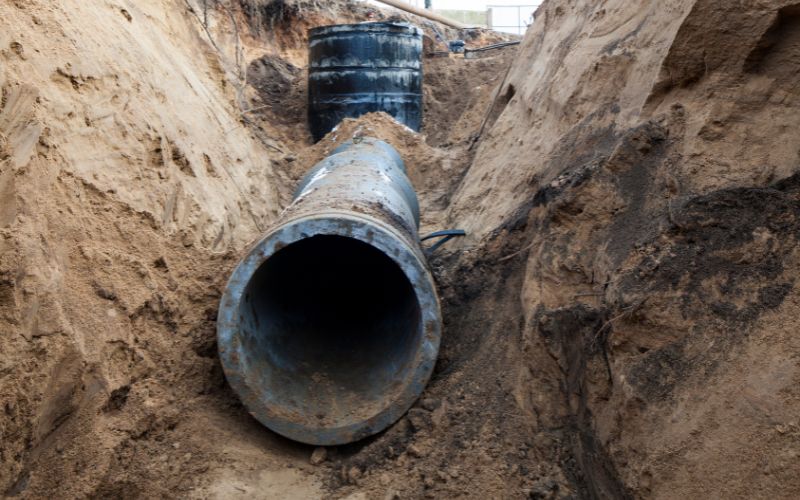
Signs Your Sewer Line Needs Cleaning
Regular maintenance is essential to keep your sewer line in optimal condition. While it’s advisable to schedule a professional cleaning every 18 months, certain signs indicate an urgent need for service. Here are refined insights on how to identify when your sewer line is crying out for attention.
Gurgling Sounds
A symphony of gurgling sounds from your drains is more than a minor inconvenience—it’s a red flag. These sounds are often the first indicator of a clog in the making. As obstructions form, air trapped in the water seeks to escape, producing those distinctive gurgling noises. If not addressed, these early warnings can escalate, leading to more severe issues like water pooling around the drains.
Water Pooling
When you notice water amassing around drains or in your yard, it’s a clear sign that your sewer system requires immediate attention. Appliances connected to the sewer system, such as washing machines and dishwashers, can also be tell-tale spots for detecting pooling water. Slow drains are often a precursor to this issue, signaling a lurking clog that needs prompt action to prevent full-blown blockages.
Unpleasant Odors
Occasional odors from toilets and kitchen sinks are normal. However, persistent rotten or sulfur-like smells are indicative of a deeper issue. These odors often stem from bacteria buildup in the P-trap, resulting from slow drains that provide a breeding ground for microbial growth. If you detect a consistent rotten egg smell or any strong sewage odors, it’s a clarion call for professional cleaning.
What to Do If Your Sewer Line Needs Cleaning?
Discovering that your sewer line requires cleaning can be daunting, but taking immediate and appropriate actions can mitigate potential damage and restore your system’s efficiency. Here are three pivotal steps to take when faced with a sewer line that needs cleaning:
Evaluate the Situation
Before jumping to conclusions or actions, take a moment to assess the extent of the issue. Identify the specific signs that led to the realization that your sewer line needs cleaning, such as persistent odors, slow drains, or gurgling sounds. This initial evaluation is crucial as it helps in communicating the problem effectively to professionals and aids in understanding the severity of the issue.
Avoid DIY Solutions for Major Issues
While it might be tempting to resolve the issue yourself, especially if you’ve handled minor clogs before, it’s essential to recognize when a problem is beyond DIY solutions. Utilizing chemical cleaners or attempting to dislodge clogs without the right tools or knowledge can exacerbate the issue, leading to more significant damage and potential health risks.
Call to Professionals
This can’t be emphasized enough – when in doubt, call in the experts. Professionals are equipped with the skills, tools, and knowledge to diagnose and resolve sewer line issues effectively. They can identify the root cause of the problem, provide a comprehensive cleaning, and offer insights on preventive measures to keep your sewer line in optimal condition. Restoration Operators are always at your service, ensuring that expert help is just a call away.
Cost Factors When Cleaning Your Sewer
The cost of cleaning varies depending on several factors:
Method Chosen
The cleaning techniques employed, from chemical cleaners to mechanical methods.
Sewer Age
Older systems may require more intensive cleaning or repairs.
Complexity of the Clog
The nature and severity of the blockage.
Accessibility of the Clog
The location and ease of access to the blockage.
Tips for Keeping Your Sewer Line Clean
Maintaining a clean sewer line is integral to ensuring the efficiency and longevity of your plumbing system. Here, we’ve curated enhanced tips, drawing inspiration from proven methods, to help you in this essential aspect of home maintenance.
Proper Disposal of Grease
One of the cardinal rules of plumbing maintenance is to avoid pouring grease down the drain. Instead, collect it in a container and dispose of it in the trash. This practice prevents the buildup of grease that can lead to stubborn clogs.
Weekly Hot Water Flush
Make it a routine to pour boiling water down your sink and shower drains once a week. This simple practice helps dissolve minor obstructions and can prevent the accumulation of debris that leads to clogs.
Utilize a Soap and Water Mixture
Every so often, pour a concoction of dish soap and boiling water into each drain. The soap helps break down grease and oil, while the hot water flushes away debris, ensuring your pipes remain clean and clear.
Natural Cleaning Solutions
Embrace the cleaning prowess of baking soda and vinegar. Pouring this combination down the drain can effectively break down clogs and cleanse the pipes. It’s an eco-friendly option that’s gentle on your plumbing system yet tough on clogs.
The Salt and Vinegar Treatment
For a more intensive cleaning, consider the salt and vinegar method. Add a teaspoon of salt into the drain, followed by a quarter cup of white vinegar. Let the mixture sit for an hour to break down clogs, then flush with hot water to cleanse the pipes.
Sewer pipe cleaning – DIY vs. Hiring a Professional
While some minor issues can be resolved with DIY methods, severe blockages and maintenance require the expertise and equipment of professionals. They ensure a thorough job, extending the lifespan and efficiency of your sewer system.
Conclusion
Maintaining your sewer line is integral to the overall health of your home. While self-maintenance can address common issues, the expertise of professionals like Restoration company ensures your system is at its peak efficiency.
Is your sewer line up to the task? Trust Restoration Operators for comprehensive Sewage Cleanup services. As your go-to Restoration Company, we ensure your plumbing system is efficient and trouble-free. Contact us today!
FAQs
Every 18-22 months is standard, but it can vary depending on the system’s age and usage.
Look out for slow drains, unpleasant odors, frequent clogs, gurgling sounds, and unexplained wet spots in the yard.
For minor clogs, yes. But professional service is advised for thorough cleaning and maintenance.
Avoid disposing of grease and non-biodegradable items down the drains and use enzyme-based cleaners regularly.



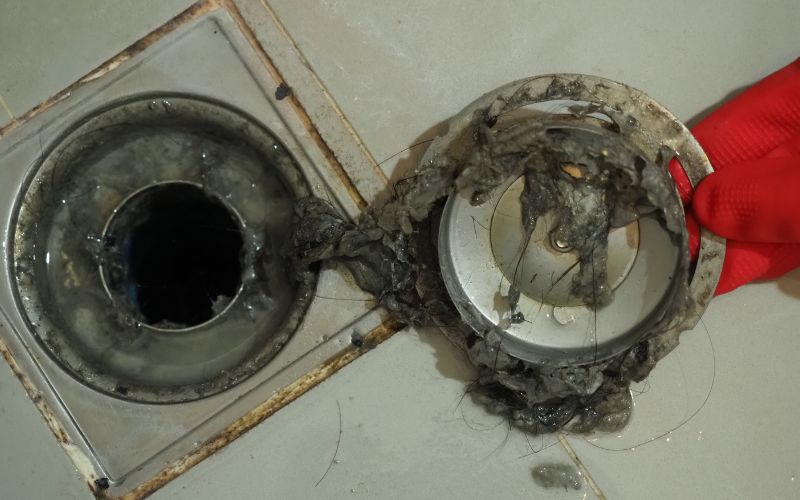
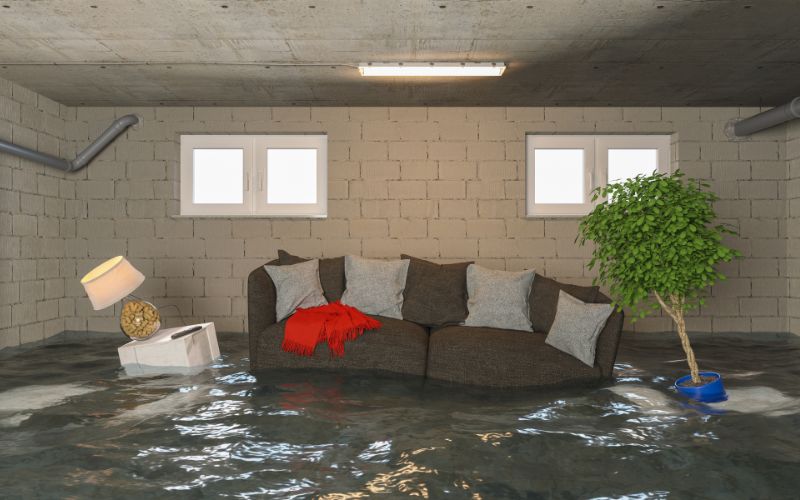
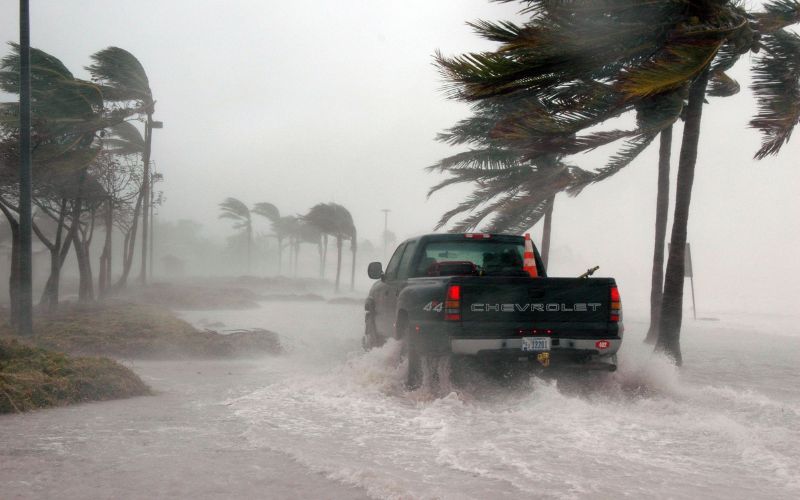
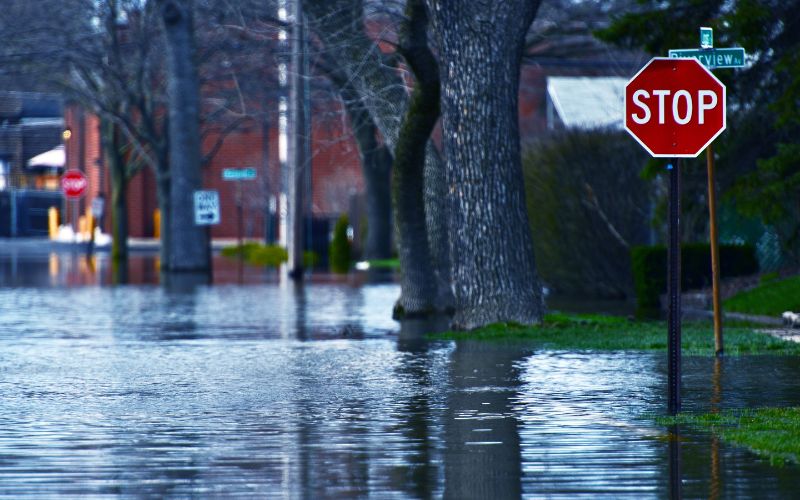
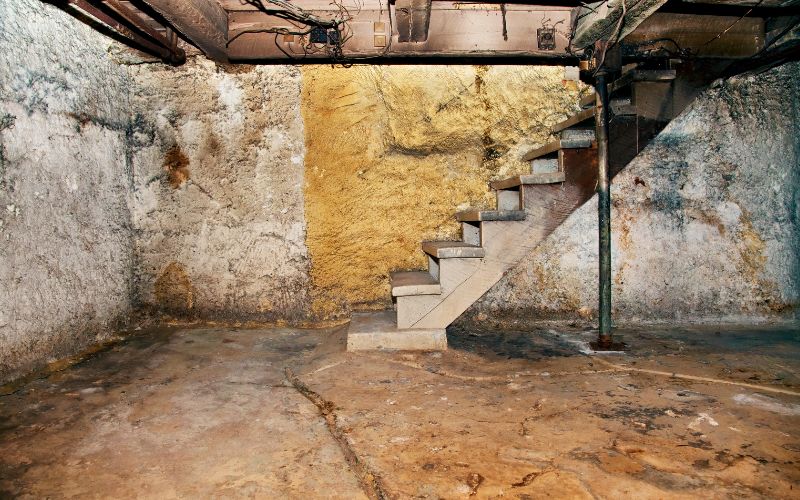





 by
by